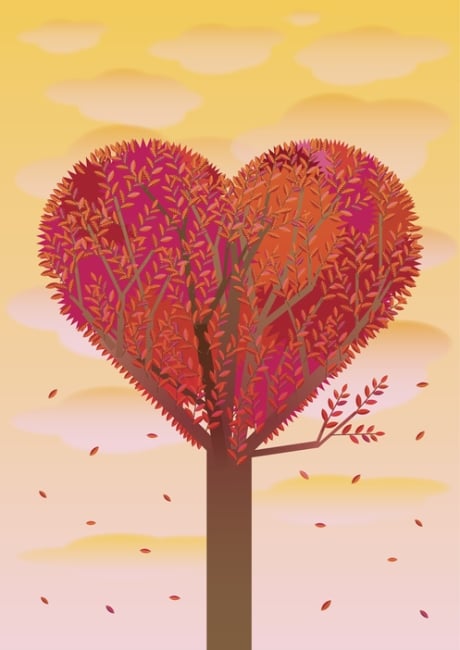You have /5 articles left.
Sign up for a free account or log in.

Istockphoto.com/JuanPabloRada
Giving up our calling is part of our calling. I realized that last year upon retirement. I stopped doing what I love: teaching. What helped me during the transition was reflecting on it by writing poems.
He Thinks of Retirement
It should be like cooking a tenderloin
on a grill with charcoals white and ready,
one for each year.
He doesn’t want to go out dry
or burnt. He wants to leave
still red in the center.
He wants juice left on the plate.
I wrote this before fall term started. The analogy gave me a goal to reach.
I experimented with using different images to explore retirement.
The Grip
He figured his last year of work
would be like a combine
cutting stalks,
leaving old cobs and husks.
He knew he would never till
these fields again.
He would move
and live beside water.
Forty years turning into humus --
but winter rye is growing he didn’t plant.
He feels the grip of roots.
During that September and October, I felt springlike: not old but new. I didn’t expect this. Although the “grip of roots” suggests that giving up teaching would tug at me, I knew it was time: I had had a small stroke two years before, and despite hearing aids, I had difficulty hearing students.
Teaching has been my calling -- especially first-year composition. In 1977, my senior colleagues taught lit, not comp. I filled a need. My graduate work focused on composition. After teaching for years without a textbook, I had created my own activities and assignments. My college mentor, Dean Memering, invited me to co-write a textbook for Prentice Hall, using what I did in my classes.
Writing also encouraged me personally. As a boy who stuttered, I could control my words in writing. One of my primary goals as a teacher was to help students not fear writing the way I had feared speaking. I loved discovering ways to make writing life-affirming and worthwhile for students.
Retirement puts reflection in high relief -- especially the present. I tried to preserve certain moments through poems. That happened toward the end of a first-year seminar I taught called Wisdom: Cool Mind, Warm Heart.
A Kind of Waltz
The teacher, in his last year,
had assigned a chapter on death.
Alex said he wasn’t afraid.
Sarah said she was.
Kiwana stayed silent, though
her brother had died that summer.
Gabe too, his mother gone
10 years.
Toward the end, the teacher played
“Let the Mystery Be” by Greg Brown.
He turned off the lights and asked
if anyone wanted to dance.
Robert got up, tall and smiling.
His hands and the teacher’s hands
fumbled in the air
till their fingers laced.
Robert twirled his teacher,
and his teacher twirled him.
They kept dancing like that
till it was time to go.
Separated,
they kept dancing like that.
Never planning to dance with a student, I just playfully asked, and Robert complied. Joy happened in Academic Center 315 that day.
During the year, my awareness grew. I noticed more details and dynamics. This happened in my Intro to Creative Writing course.
When Class Began, His Name Was Emily
Seldom looking up, she drew
tiny pictures
in blues and greens.
But she smiled with an edge
of light.
She could write:
when her windows opened
the world breathed through.
Later that term she cut
her pale hair short.
In my office she said
she wanted a new name
but couldn’t talk about it.
She wrote “Al”
in the left corner of new stories.
In class I called him Al.
No one asked about it:
the name felt sanded smooth.
The last day of class, Al wore shorts.
I noticed he still shaved his legs.
Witnessing Emily’s transition to Al was beautiful. At the end of that course, Al delivered five minutes of jokes he had written.
That year, I slowly cleaned out my office, including tossing out a thin box of blue carbon paper I used on a mimeograph machine -- the pages often creasing -- along with a faded peacock feather and anthologies of poems from inmates my students taught at a local prison.
Thinning Out 40 Years
He sees what not to keep:
meeting notes, grade sheets,
handouts on using commas.
He finds Monica’s file,
a little person who raised a white stick
to press buttons in the elevator.
She emailed him a few years ago:
she dreamt he had died. He didn’t know
what to reply. Now she’s gone.
He reads her transcript, her poems
and places them on the pyre
at the side of his desk
that he will put -- not dump --
into the recycling bin
down the hall.
Over all, letting go felt freeing. I enjoyed taking down what I had put up, such as posters of Lucille Clifton and Robert Bly, writers I had brought to campus, and a corny watercolor of a cow with a lemon meringue pie on its head -- a visual pun.
Some poems called for comic relief.
He Wonders if He’ll Miss All This
Grading 40 research papers in three days,
he will spend his life in other ways.
Most students don’t use sources well.
He’s living in a scholar’s hell.
He showed them how to use quote marks.
At his desk, he makes strange barks.
He said, “Tuck periods inside like a sheet.”
But they put them out in their heat.
Their papers need clear theses.
That word should not sound like feces.
When he reads one composed with care,
he stops pulling out mental hair.
Look: a colon well used.
He no longer feels abused.
And a dash for emphasis --
oh, he might miss all this.
Until he reads the next without one quote
and wants to cut his throat.
While grading papers, I wrote more comments than usual, as if I needed to spend all my currency before I left.
Gone now a year, I don’t miss teaching, which surprises me. Yet I still dream about the institution. I rarely remember departmental crises or colleagues who hurt our mission more than helped. But I recall the art of engaging students through surprise. I recall the science of experimenting with pedagogy to discover what worked best and why. And I recall the deep pleasure at seeing students learn this truth: that what they say and how they say it go together -- like a kind of marriage.
This last moment happened a few days before graduation.
A Shore
Toward the end
Paige, one of his students,
appeared in his doorway
then sat beside his desk,
and when he asked her
what her plans were,
she shrugged her shoulders
three times, a move
he loved to see.
Then she looked at him
with her gray-blue eyes
or rather through him
somehow
all the way
to some other side
as if there were a shore.
She stared
until he thanked her
for stopping by.
Retired now,
he recalls that moment
as though she’d caught him
like an old brook trout
stippled with quiet
yellows and reds
and studied him
before she let him go.
I didn’t understand this moment when it happened. I still don’t. But I’m grateful.
I’m grateful for it all.




